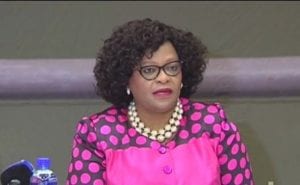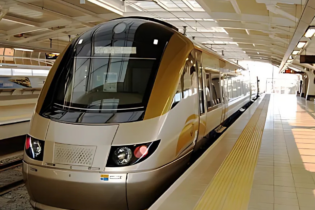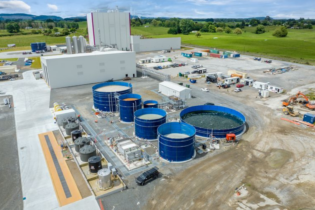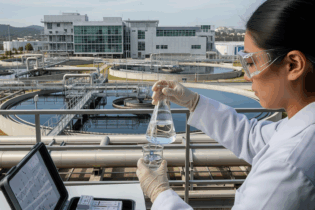
Nomvula Mokonyane, Minister of Water and Sanitation
This comes after the Department of Water and Sanitation (DWS)
threatened to cut water to the top 30 defaulting municipalities if they failed to settle all their water debt older than 60 days. At that time the department faced an outstanding water debt of R10.7 billion, with 73% of that amount being outstanding for longer than 60 days.
Water is not free
Addressing the non-payment issue at the summit yesterday, panellist Lindiwe Mkonza from ChiefKasi Water argued that the perception around water in South Africa needs to change. “Water is not free. Rainwater is free, however processed water to your tap is not,” she emphasised.
Mkonza believes that in order to for South Africa to get the funding it needs for its water sector, this perception that water is free needs to change.
Putting the right structures in place
Sifiso Mkhize, Director General of the DWS, argued that inefficiencies and mismanagement within all levels of government need to be addressed in order to rectify non-payment issues.
Thami Hlongwa, acting Chief Executive at Umgeni Water, pointed out that there is often an exaggeration of poverty and inability to pay. He believes that within the value chain, while there are indigent communities, there are those who can afford to pay for water. However in some cases areas are marked as indigent when some residents in those areas are able to pay, he pointed out.
“It is a question of [whether we are] creating enough awareness for them to have the willingness to pay,” he said. “It is a matter of us being able to create the awareness as well as create the system that allows us to be able to bill, and the awareness for the community to understand that [water is essential] and they need to prioritise is first.”
Investing in water
The function of yesterday’s Water Infrastructure Investment Summit was to seek new partnerships and investments to ensure water security in South Africa.
Mokonyane noted that access to finance was a catalyst for delivery of water infrastructure, but that the cost to deliver such infrastructure was becoming prohibitively expensive.
“While there are many constraints to the delivery of water infrastructure, one of the most obvious factors that hampers delivery is project finance,” she said. “Many of the nation’s water and wastewater infrastructure and systems have been operated for five or more decades. As pipes, pumps, and plants reach the end of their expected life lifespan, water infrastructure capital needs are growing rapidly, yet investment in water infrastructure is not keeping pace.”







